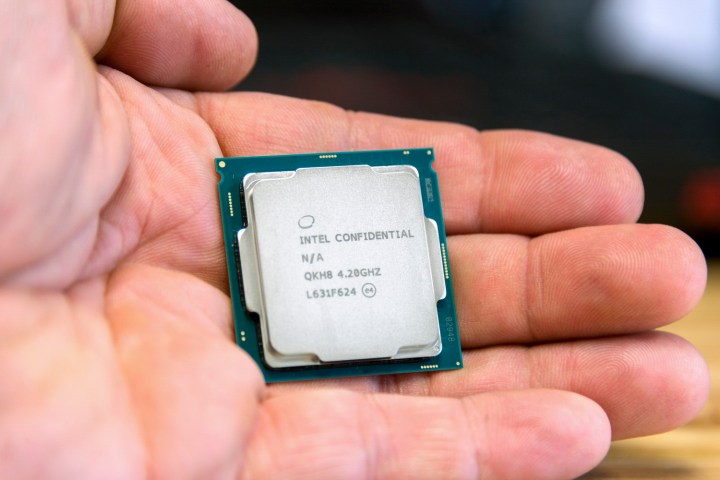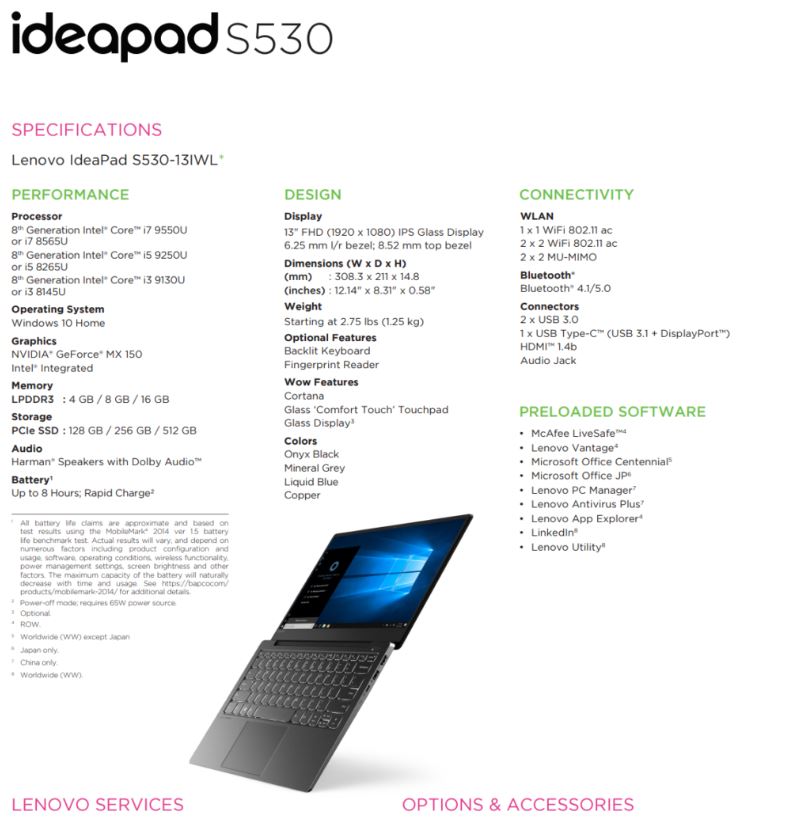
Intel recently refreshed its lineup with 9th-generation desktop processors, led by the flagship Core i9-9900K, but new mobile CPUs for laptops and other 2-in-1s were noticeably absent. A refresh could be coming soon though, as leaked Lenovo documentation now points to a new series of low-powered Intel mobile processors, according to a report from WCCFtech.

Specifications or pricing are not available or official as of yet, but the leaked documentation for a Lenovo Ideapad S530 points to three new Intel chipsets. Still falling under the U-series, the new mobile processors include the Core i7-9550U, Core i5-9250U, Core i3-9130U. These would be replacing the Core i7-8565U, Core i5-8265U, and the Core i3-8145U, which are still listed as configuration options for the yet to be announced Lenovo device.
Unlike the 9th-generation desktop processors, these new mobile CPUs could likely come with faster clock speeds and just a slight jump in performance and power efficiency. Considering Intel’s delays, the chipsets are also likely to still be built on the existing 14nm++ processes without an overall increase in core or thread counts.
You can instead expect for the i7-8565U and Core i5-8265U processors to come in quad-core and Hyper-Threading configurations, and the Core i3 series coming in a dual-core variety. As for cache levels, WCCFtech reports the Core i7 could come with 8 MB of L3 cache, the Core i5 6 MB of L3 cache, and the Core i3 4 MB of L3 cache.
Nothing is official due to these leaks, but since the chipsets are listed on Lenovo’s documentation, it does hint that the release of 9th-generation mobile processors could be right around the corner. Intel also recently launched a new line of 8th-gen mobile chips at IFA 2018 in August, and their release timeline has been inherently confusing and vague.
CES 2019 is also coming up, and this could be the right time for a new reveal. It would pair up nicely alongside new laptops from leading manufacturers such as HP, Dell, Lenovo, and Samsung. Hopefully, the release will be controversy-free once these new chipsets become public. Intel recently stood by benchmarks on its new desktop processors, after benchmarking company Principle Technologies was accused of skewing certain technical testing results.


